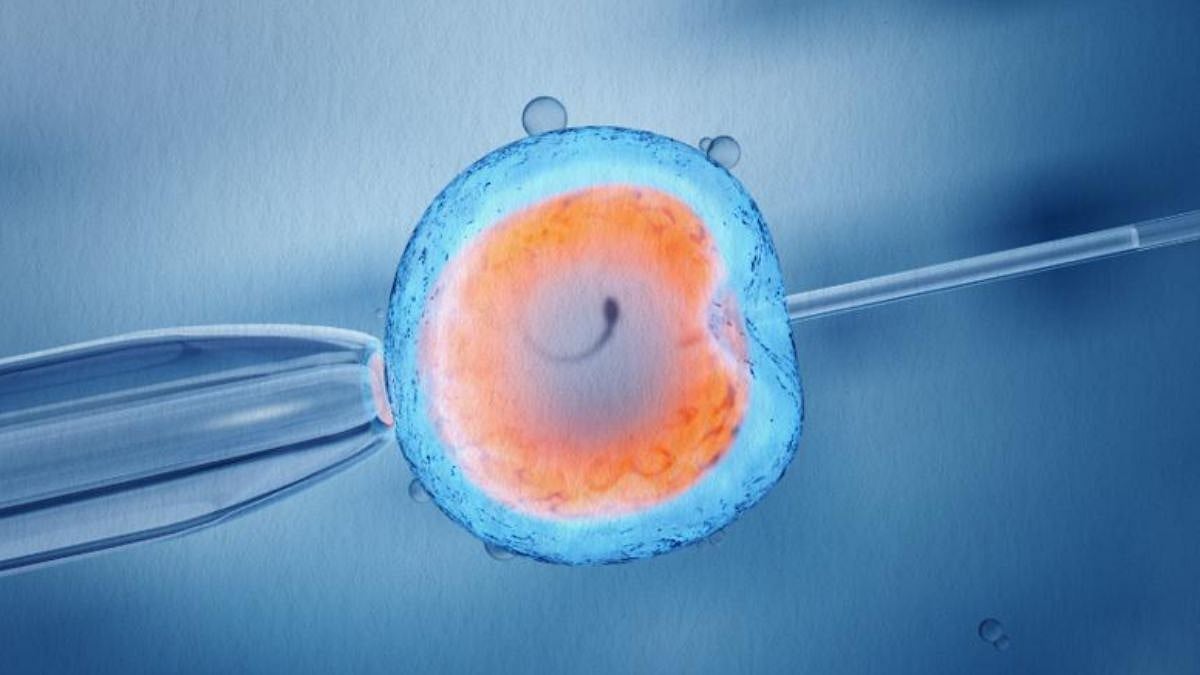When To Consider IVF: Medical Signs You Shouldn’t Ignore | Representational Image
In a world where technological advances in reproductive medicine are turning dreams into realities, In Vitro Fertilization (IVF) serves as a beacon of hope for couples battling fertility issues. However, many people delay getting help, often because they are confused about whether it is worth it to try IVF or not. Which is why we are here to tell you about a few cases in which IVF may be your best option for conceiving successfully.
1. Trying to Conceive for a Year Under 35
People under the age of 35 require a fertility evaluation if they have been unsuccessful at conceiving naturally for 12 months or more. Although IVF is not always required, a fertility evaluation can assist in identifying underlying problems early on and help with conception.
2. Trying to Conceive for 6 Months Over 35
As people age, their fertility naturally declines. Women over the age of 35 who are unable to get pregnant after trying for six months should consider consulting with a fertility doctor to learn about their options, including IVF, if necessary.
3. Low AMH Levels or Low Ovarian Reserve
Low levels of AMH may indicate that a woman has a low egg reserve in her ovaries. A low egg count may complicate the possibility of a natural conception. As in women with increasing age, the ovarian reserve decreases and time is of the essence. That’s when IVF can help by maximizing your odds of pregnancy with the available eggs in your ovary or with the help of donor eggs.
4. Fallopian Tubes that are Blocked or Damaged
Blocked tubes is a medical condition that makes it impossible for the sperm and egg to naturally meet. If one or both fallopian tubes are blocked or damaged, IVF can help by fertilizing the egg outside the body and transferring the resulting embryo inside the uterus of the mother for implantation.
5. Infertility Due to Male Factors
The issue of infertility is not limited to women. Abnormal shape, low count, or poor motility of sperm can often affect fertilization. Male factor infertility can be effectively overcome with IVF, in combination with ICSI (Intracytoplasmic Sperm Injection) or with the help of donor sperm.
6. Recurrent Miscarriages
It can be devastating to experience multiple miscarriages while someone is trying to conceive. By identifying viable embryos, IVF along with genetic testings like PGT might increase the likelihood of a successful pregnancy and lessen the stress of possible pregnancy losses.
7. Unexplained Infertility
Occasionally, it may happen that all tests show normal results and yet pregnancy remains unattainable. In such circumstances, IVF can be used as both a diagnostic tool and a form of medical treatment, boosting the likelihood of conception under carefully regulated conditions.
Things to Consider Before Starting Your IVF Journey
When it comes to starting a family, the process of considering fertility choices can be an emotional one for a patient. Therefore, selecting the right fertility clinic that will give you the best possible care can make all the difference.
It is also advisable to look into the qualifications and credentials of the fertility specialists and their team , along with the success rate so that you can choose a trusted fertility clinic like thousands of couples have with Progenesis Fertility Center.
“We are known for our high success rates, especially in challenging cases of age-related infertility, male infertility, and repeated IVF failures. We combine skilled expertise with compassionate care to provide every couple who walks through our doors with the best shot at becoming parents.”, says Dr. Narhari Malagaonkar, Chief Fertility Consultant, Progenesis Fertility Center.
Conclusion
IVF is one of the leading fertility treatments that has fulfilled parenthood dreams for millions of people world wide. With its high success rate of pregnancy, it is trusted by anyone who is in need of a little help from science to achieve the joy of welcoming their little one home.
If you’re someone who’s experiencing any of the above mentioned symptoms in your journey, it may be time to consider IVF as a proactive move toward starting a family. Do not wait for hope to fade away. Begin your parenthood journey with IVF today.
